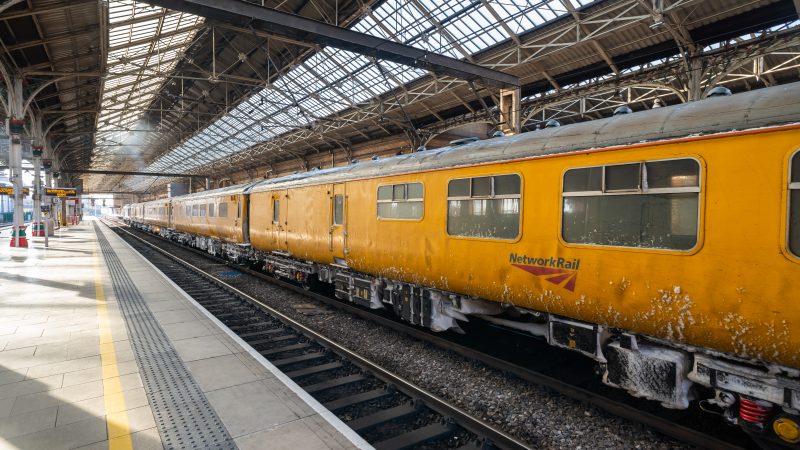
ASLEF general secretary Mick Whelan has argued that the union has “no choice” but to take further strike action after it confirmed that members working at 12 companies will walk out later this month in an ongoing dispute over pay.
The train drivers’ union announced today that its members will go on strike on November 26th, in a fifth day of industrial action following two days of strikes over the summer and two further walkouts in early October. The union said negotiations with the industry had so far not led to a pay offer.
Whelan said: “We regret that passengers will be inconvenienced for another day. We don’t want to be taking this action. Withdrawing our labour is always a last resort for a trade union.
“We have come to the table, as we always will, in good faith but while the industry continues to make no offer – due to the dodgy deal they signed with the Department for Transport – we have no choice but to take strike action again.
“They want drivers to take a real-terms pay cut. With inflation now well into double figures, train drivers who kept Britain moving through the pandemic are now being expected to work just as hard this year as last year but for less. Most of these drivers have not had an increase in salary since 2019.
“We want the companies – which are making huge profits – to make a proper pay offer so that our members can keep up with the cost of living.”
ASLEF members at 12 companies – Avanti West Coast, Chiltern Railways, CrossCountry, East Midlands Railway, Great Western Railway, Greater Anglia, London North Eastern Railway, London Overground, Northern Trains, Southeastern, Transpennine Express and West Midlands Trains – will be involved in the strike.
The union – which represents 96% of train drivers in England, Scotland and Wales – has successfully concluded pay deals this year with 14 companies including DB Cargo, Eurostar, Freightliner Heavy Haul, Freightliner Intermodal, GB Railfreight, Merseyrail, MTR Elizabeth line, PRE Metro Operations and ScotRail.
The latest strike by ASLEF members follows widespread action across the UK’s rail network over the summer. 80% of train services were stopped during three days of strike action by the members of the rail, maritime and transport workers’ union (RMT) in June.
Approximately one in five trains across half of the rail network were thought to have been running on July 27th after members of the RMT and the Transport Salaried Staffs’ Association (TSSA) went on strike.
The RMT announced last week that it was cancelling a series of strikes due to take place on November 5th, 7th and 9th and said it was entering “a period of intensive negotiations” with Network Rail and rail operators. A strike by RMT members working on the London Underground scheduled for today has gone ahead.
RMT general secretary Mick Lynch said: “The threat of strike action and our strongly supported industrial campaign has made the rail employers see sense. We have always wanted to secure a negotiated settlement and that is what we will continue to push for in this next phase of intensive talks.
“Our priority is our members, and we are working towards securing a deal on job security, a decent pay rise and good working conditions. Our re-ballot remains live, and if we have to take strike action during the next six months to secure a deal, we will.”




More from LabourList
‘Turning public services around: Haringey’s story of child protection’
‘Can Labour turn the green tide back to red?’
Tom Belger column: ‘Why is Labour making migrant exploitation easier?’